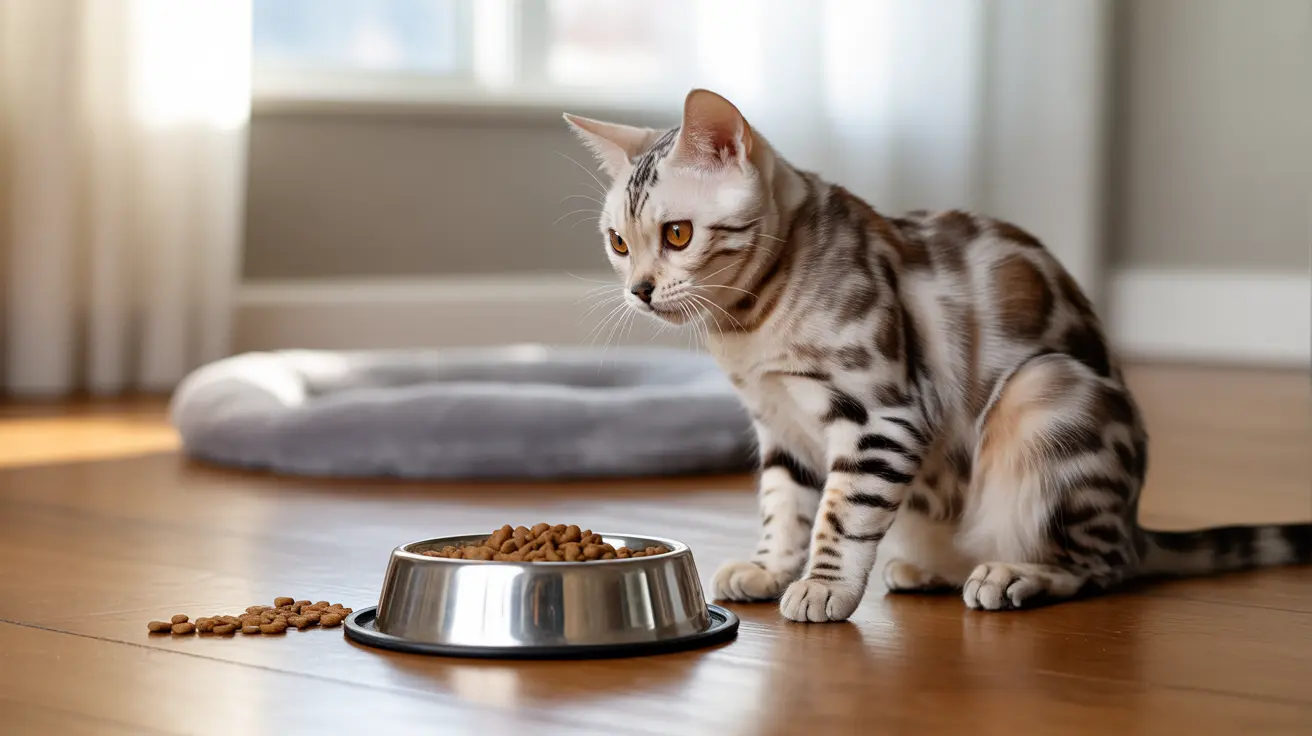If you've noticed your cat constantly begging for food despite regular meals, you're not alone. Many cat owners face this puzzling situation, especially when their feline friend remains thin despite eating frequently. This comprehensive guide explores the various reasons behind excessive feline appetite and helps you understand when to be concerned.
Understanding why your cat seems perpetually hungry is crucial for their health and well-being. From medical conditions to behavioral factors, several underlying causes could explain this concerning phenomenon. Let's explore the most common reasons and what you can do about them.
Medical Conditions That Cause Increased Appetite
Hyperthyroidism: A Common Culprit
Hyperthyroidism is one of the most frequent causes of increased appetite in cats, particularly in those over 10 years old. This condition occurs when the thyroid gland produces excess hormones, accelerating your cat's metabolism and causing them to burn calories faster than they can consume them.
- Increased appetite with weight loss
- Hyperactivity
- Excessive thirst and urination
- Vomiting
- Rapid heart rate
Diabetes Mellitus
Feline diabetes prevents proper glucose utilization, leading to increased hunger as cells struggle to access the energy they need. Despite eating more, affected cats often lose weight because their bodies can't properly process nutrients from food.
Digestive System Issues
Inflammatory Bowel Disease (IBD)
IBD can cause malabsorption issues, where your cat's body cannot properly absorb nutrients from food. This leads to increased appetite as their body tries to compensate for the nutritional deficit.
Intestinal Parasites
Parasites like tapeworms and roundworms can steal nutrients from your cat's digestive system, causing increased hunger while preventing weight gain. Regular deworming is essential, especially for outdoor cats.
Behavioral and Environmental Factors
Stress and Anxiety
Cats may develop increased appetite due to stress or anxiety. Changes in the household, new pets, or moving to a new home can trigger stress-related overeating.
Boredom and Lack of Enrichment
Some cats eat more frequently when they're bored. Environmental enrichment, interactive toys, and regular play sessions can help reduce boredom-related eating behaviors.
When to Seek Veterinary Care
- Constant hunger combined with weight loss
- Increased thirst and urination
- Changes in behavior or energy levels
- Vomiting or diarrhea
- Poor coat condition
Treatment Options and Management
- Medication for hyperthyroidism or diabetes
- Dietary adjustments for digestive issues
- Deworming for parasitic infections
- Environmental enrichment for behavioral causes
Frequently Asked Questions
Why is my cat always hungry but losing weight?
This combination often indicates a medical condition such as hyperthyroidism, diabetes, or intestinal disease. These conditions affect how your cat's body processes nutrients, leading to increased appetite but continued weight loss.
Could my cat's constant hunger be a sign of hyperthyroidism or diabetes?
Yes, both conditions commonly cause increased appetite alongside weight loss. Other symptoms include excessive thirst, frequent urination, and changes in activity levels. A veterinary examination and blood tests can confirm these diagnoses.
How can intestinal diseases or parasites cause my cat to eat more yet stay skinny?
These conditions interfere with nutrient absorption in the digestive tract. Even though your cat is eating more, their body isn't able to properly utilize the nutrients from their food, resulting in weight loss despite increased intake.
What dietary changes or treatments can help if my cat is always hungry due to a medical condition?
Treatment depends on the underlying cause. Your veterinarian may prescribe specific medications, recommend prescription diets, or suggest dietary supplements. Always follow professional medical advice rather than making dietary changes independently.
Can boredom or stress make my cat seem constantly hungry, and how can I manage it?
Yes, both boredom and stress can lead to increased appetite. Provide environmental enrichment through interactive toys, climbing structures, and regular play sessions. Creating a consistent routine and reducing stressors in your cat's environment can also help manage these behavioral causes.
Remember, while increased appetite in cats can have many causes, proper veterinary diagnosis and treatment are essential for maintaining your cat's health and well-being. Don't hesitate to consult your veterinarian if you notice persistent changes in your cat's eating habits or weight.






